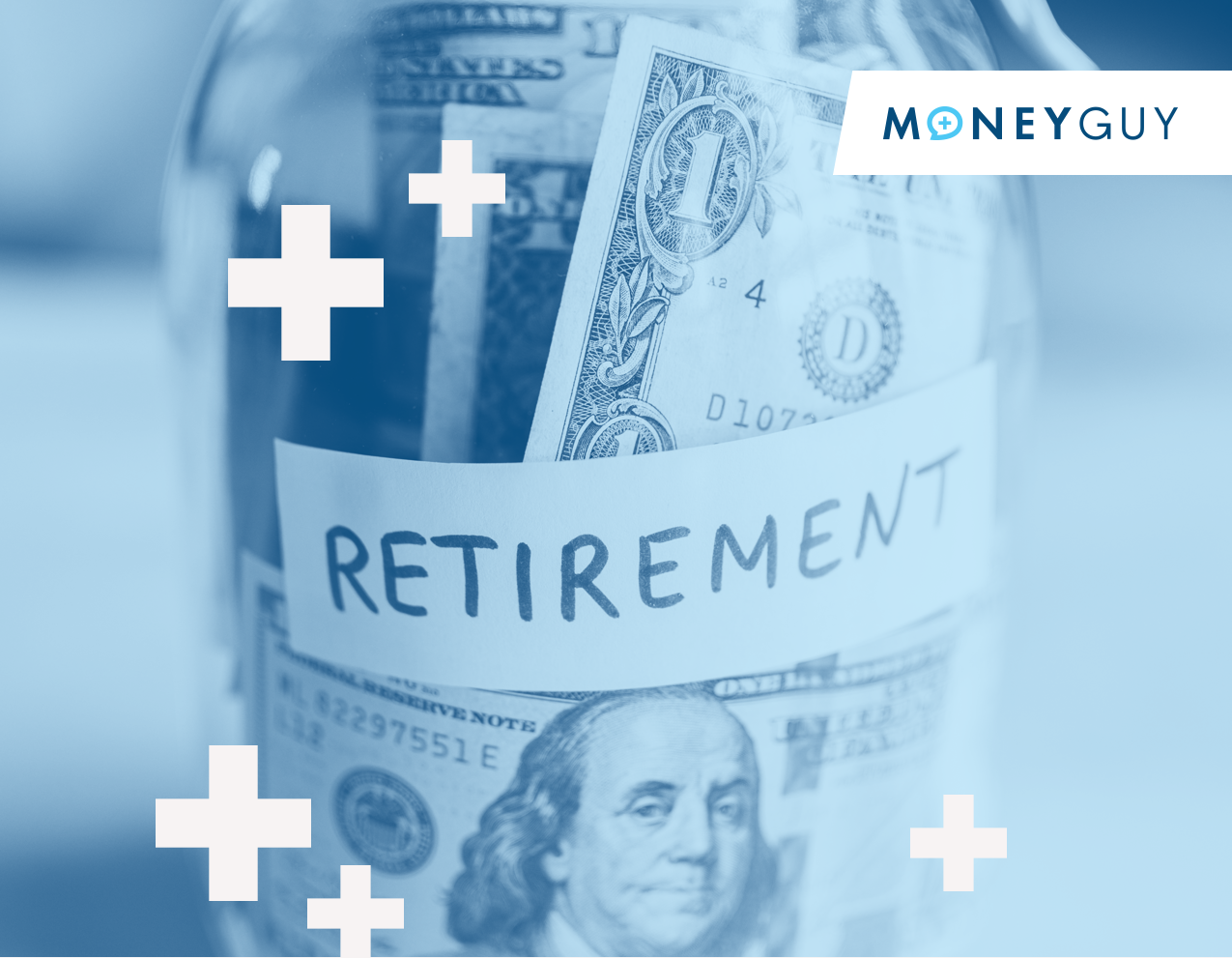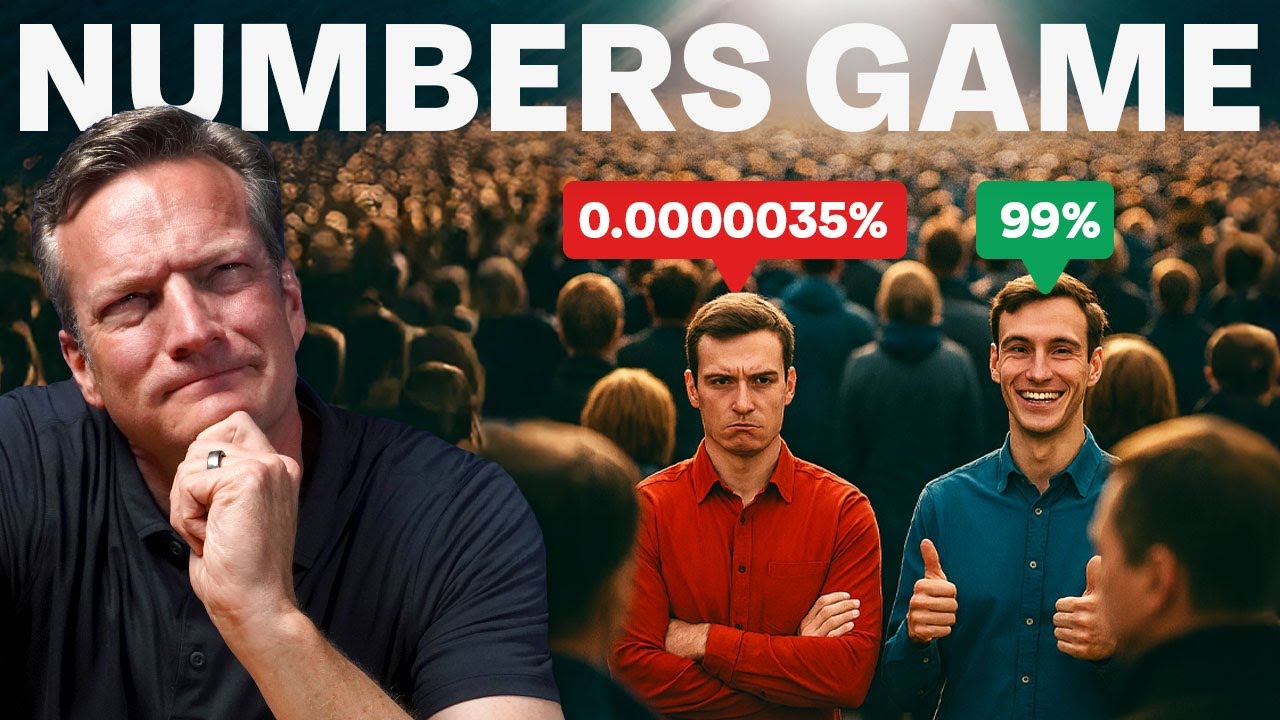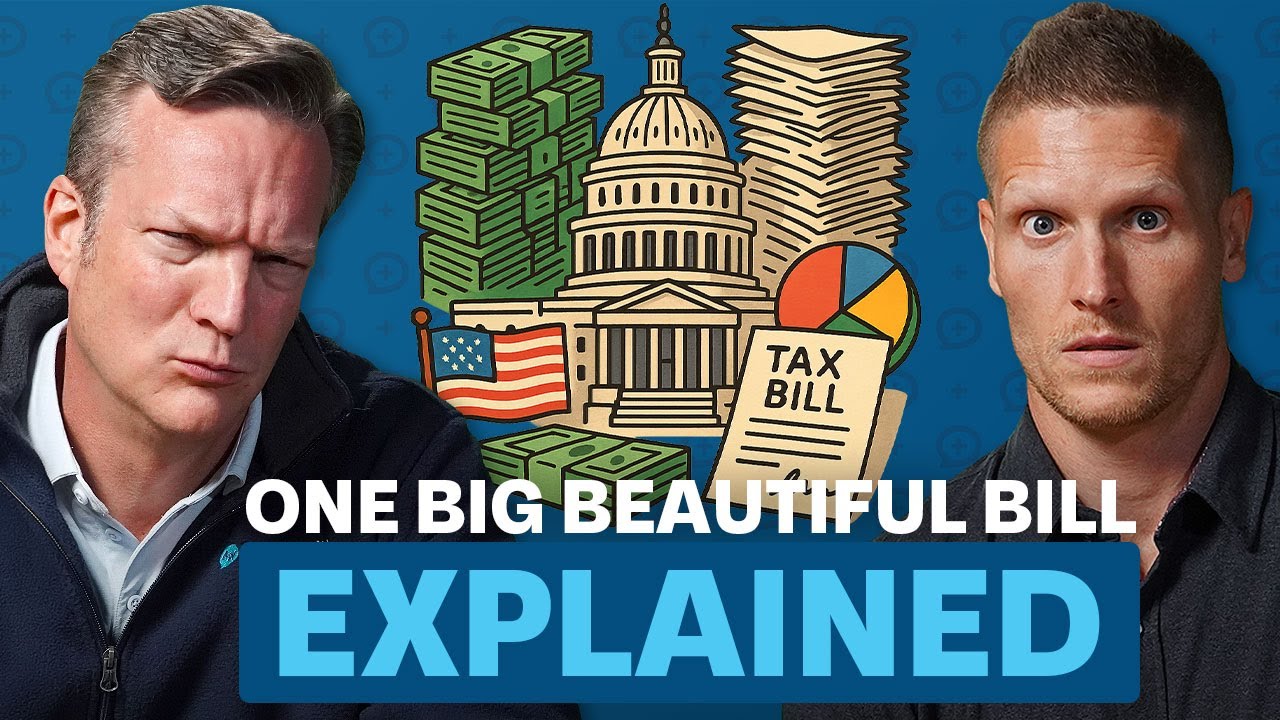Something I'm passionate about because, I mean, this is, if you ask me, where did my first clients come from when I started my first business in tax prep and so forth? It was all entrepreneurs because I could help them with saving money from Uncle Sam. I was out there starting my own business. I had a passion for it, but, and this is something that I've even had a conversation, I think about one of our clients that was in the Telecom sector, and he was like, "Guys, I, you know, I could either invest with you guys, or I could go buy another piece of equipment." And I was like, "Man, with the way you're growing your business and the way you're scaling, you should invest in your business." Entrepreneurship is sexy, exciting; there's a reason why when you watch any reality dating show, half the people on there that are trying to impress people will say "entrepreneur" is their title. You don't know if that means that they just, you know, are doing an Uber or something like that, but "entrepreneur" has a lot of sizzle to it. But we want to walk through and figure out what's in the brochure versus what's in reality because remember the thing we're trying to unpack here is if I want to go from zero dollars today to ten million or to one million dollars ten years from now, what's the best path? Well, entrepreneurship, for sure, can be a path to do that, but I think unfortunately a lot of people don't have an incredibly accurate view of what entrepreneurship looks like and really what business looks like. We even have some friends who are gonna share with us how easy it can be before we show this example of just craziness. I'll get into that, but I think that the why for being an entrepreneur, coming from my own experience, has to be overpowering because I'm going to show you in a minute that the first three years, that first five years might be bumpier than you realize. And if your why is not overpowering, just the passion or desire might not get you there. So, I worry that people don't have the why, they don't have the passion or desire, and they may oversimplify it.
Check this explanation out: How you make money in the luxury car rental business in Dubai. I'll explain it to you. You buy a Lamborghini, let's say, for three hundred thousand dollars. You rent it out for three thousand dollars a day. You need 100 days to make the money back. But here's the trick. If you rent it out for thirty thousand dollars a day, you will only need 10 days. Oh yeah, but this is what many people don't know. If you rent it out for three hundred thousand dollars for one day, you have their car back and the money. Brother, this is crazy. Many people don't notice that this is how the business works. Oh, this is how business works. It's not about full disclosure. In the content meeting, I was like, who came up with this parody video? Obviously, this has to be parody. If this was a Saturday Night Live skit, I would not have been surprised or something like that, but then I was shocked when everybody said, "I was the one." You were the one that sent us along in the group, so I did a little deep job. Somebody on Twitter shared this with me. So, congratulations, Financial Mutants; you got a piece of content. But surely, that is parody because that's a math problem because all he did was they said, "Hey, go buy something super expensive, rent it for three thousand dollars a day, and you'll recoup it in 100 days." You know what's even better than that? If we could do it in 10, no, 10 days. No, what's better? Why don't you, for the purchase price, just rent it one day? That's silly; that's just madness. It seems ridiculous, right? Like, I'm obviously thinking about buying a three hundred thousand dollar Lamborghini; it seems ridiculous. But how many people think about businesses that same way? They say, "Okay, if I want to make a million dollars, well, I just need to sell a five-dollar product. I just got to sell it 200,000 times." So, or you know what? I'll come up with a 50-dollar product; I've only got to sell that 20,000 times. Or, I'll come up with a 500-dollar product; I've only got to sell that 2,000 times. Or, and this is where they land, "All I got to do is come up with that five thousand dollar product, that five thousand dollar course, that five thousand dollar session, that five thousand dollar fill in the blank, and I just got to find 200 people who buy it from me. And if I find 200 people that will do that, boom, all of a sudden, I'm a millionaire." Look, the scale is a legitimate thing, and there's nothing wrong with this. But here's the reality, because I loved how he closed that he said, "This is how business works." Here's the reality of how business works is that you have to either have a skill or a product that people willingly want to give you, and then they leave the transaction after the transaction's complete, delighted, and they say, "That was so good that I hope I can do something else with that service provider or that business that made it and manufactured that product." If you, this is where I think a lot of people disconnect, is that this has to be a willing transaction, and your value-add has to be overwhelming.
So, with that set up, let's talk about the flaws. The very first one, Brian, is that you need to recognize that when it comes to business, revenue is not profit. Those are not the same thing. Just because you have money coming in does not mean that you're making all of that money. There are costs that are associated with doing business, and you need to recognize if you're going to create a five thousand dollar product and you're going to sell it to 200 people or you're going to sell 200 of them, you have to be able to create them, you have to be able to build them, you have to have distribution, you have to have sales, you have to have all of these other things. Just getting to profit alone is a pretty difficult thing for most businesses. If I take my own personal experience, it took me three to four years to get to my W-2 income. That's why I had to have big pots of cash to kind of bridge that period. And then I even look at the fact that if you said, "Hey, at what point was it a no-brainer that you went the entrepreneur path versus if you would have stayed in your high paying service industry job?" It probably was in year 10 to 12 that you actually had escape velocity point, that this was a no-brainer, that entrepreneurship worked out for me. So you can quickly see that there is a ton of opportunity between year one to year 12 for people just to say, "You know what? This is information. I'm going to quit this path less traveled. I'm not going to do it," and who could blame them? I mean, if it takes that long, you need to recognize it's not as easy as maybe the brochure or the YouTube video or the TikTok video shows you for creating entrepreneurship. Yeah. So, yes, the goal is to be an entrepreneur, and you want to get to a million dollars inside of 10 years. You've got to have monthly profit of $8,333 on average over that 10-year period. Well, it's difficult to get to one dollar of pure profit as a business owner. So, to get to $8,333 right out of the gate and continue that on for 120 months is a pretty hard charge. We did our own little math, Brian, there, who basically just took a million dollars divided by about 120 months, and that's where we came up with the $8,333. But I just shared with you guys it took me three years to kind of return to W-2 type income. So, that number would probably be much more elevated. It's back to the why has to be overpowering. I'm not talking about a whisper that you should leave your day job; this thing needs to be screaming in your ear that you should leave for this opportunity. Don't fall into the traps. Another thing you've got to think about when it comes to businesses is that scaling and being able to operate a business for an extended period of time is difficult. It's not the easiest thing in the world to do. Even if you have a five thousand dollar product, you've got to figure out how to develop a five thousand dollar product before you can sell it 200 times. You're gonna sell it one time, and then you've got to sell it the second time, and then you've got to sell it the third time. These are not easy things to do. And you already said this, Brian, it doesn't happen overnight. And people have to be willing to come back to you because here's a stat. This is a cold-water stat: Only 35 percent of small businesses make it to year 10. So, that means that 65 percent more than likely do not have the longevity; they didn't have repeat customers. Guys, this is why you have to be serious and not fall into the trap. So, think about that, Brian, 65 don't even make it to 10 years. And we know that one-third of businesses aren't actually profitable; they don't actually make money. It is a difficult thing to start a business and to operate a successful and growing business. And I don't know that the brochure tells you that. I think one of the reasons is a lot of businesses require a large capital outlay where most entrepreneurs, most people starting out, they don't have a ton of capital to spend on that. So, they go out and borrow money, and they run up debt. And so it is not uncommon for small businesses to become incredibly levered that if it does not succeed and if it does not succeed quickly, it will fail rapidly because of how dangerous debt is. Well, think about it. I mean, anybody who's watched a few more than three episodes of Shark Tank, what even if you catch this tiger by the tail and you found a product that you have a lot of people that want to buy, you have the problem of, "Oh my gosh, I have this product; it looks like it's going to be a success. Proof of concept worked. But I need to buy inventory. I need to... How do I scale on understanding what the actual demand will be, plus the inventory, plus the money that I have to put as a down payment to create this manufacturing process?" This is why it is so hard to do this, hence why we have shows like Shark Tank where big pots of money are there to kind of help out on the entrepreneurs. And that's the way the world works too is that there are flaws to taking your business to the next level. If you think about it, the average Small Business Administration loan right now is over four hundred and seventeen thousand dollars. That's the average loan that small businesses are taking out. It's a difficult thing. So, if you want to run a successful business, it takes time and planning. It takes a lot of forethought. It is not, Brian, you said it already, it's not an overnight success. It's not something you can just blink and make happen. There's a lot more that goes into it than that. So, let's put on—I'm an optimist, and I love sharing the good news of making good financial decisions. And obviously, I'd be a hypocrite if I told you how horrible it was to be an entrepreneur when you look at my past and see we have repeat processes where we've done this.
So obviously, if I tell you how scary it is, but yet I've done it, there has to be a better way to do money and a better way to start your business. So, we want to walk you through what are the things you should do to set yourself up for success. So, before you start a business, one of the very first things Brian—you tell all business owners this—you've got to put on your 3D glasses. What does that mean? What are your 3D—here's the 3D glasses. You're going to do a business plan three different ways. You're going to—and I'm talking about go all out with your projections. I told you it was going to take you three years to get back just the profitability or what you made with your W-2. It might take you 10 years to get to that launch or escape velocity point. So let's run a 10-year plan with the first D. This is the daydream. You're dreaming that, "Oh my gosh, that movie's so rich. This is going to be so perfect. This is why I did this." You're going to have your down-to-earth plan. This is the reality of the situation. Then, of course, don't skip this one. I know we love to talk about how rich we're going to be, but do the doo-doo plan. Because the doo-doo plan is going to protect you because if you can plan for how bad things can be, what a disaster it is, you might be better prepared just in case things don't go as you plan. Another thing that you should do in conjunction with building your 3D plan is test it out. And we say test it out, what we're really saying is try to figure out what your minimum viable product is. What is the minimum product or minimum service that I can introduce out into the world to prove that there's actually a demand for it? To prove that someone's willing to pay for this? How often, Brian, do we see a small business owner say, "Hey, I've got this great idea," and all of a sudden they get the name and they work on the branding and they do the website and they build all the things before they've ever made their first sale or manufactured the first product or interacted with their first customer? Make sure that you prove that the business you want to pursue is actually viable and there are people out there that are willing to pay you for that product or service or idea before you try to launch and scale. Well, I'll take it a step further. I think a lot of people have good products or good services, but they just don't give it enough capital or money, cash bridge, to get them to success. A lot of people think just the passion, the desire to work is going to be enough. No, you've got to have money, liquid capital and cash is what's going to protect you. I know for my family, my wife and I worked off of one income. We were both working, but we worked off of and lived off of one income so we could build up that forty to fifty thousand dollars of liquid cash that would bridge us to the period. And by the way, you better have a minimalist lifestyle. It's not like you're living a frothy life while you're trying to build to that break-even and then profit point of your life with your small business. So, go ahead and be prepared that it's going to be tough, and you better have your cash bridge. And then, Brian, another one that you always talk about is you say you have to know your larger purpose. Is there a "why" behind why you're doing this? Is there something that the small business, that the entrepreneurial activity is going to create for you that's outside of the money? The money may very well be a byproduct or a side effect of that. But is there something else that's going to give you that staying power to work through those years, or maybe it's not as easy as it might one day become? For more information, check out our
free resources.













